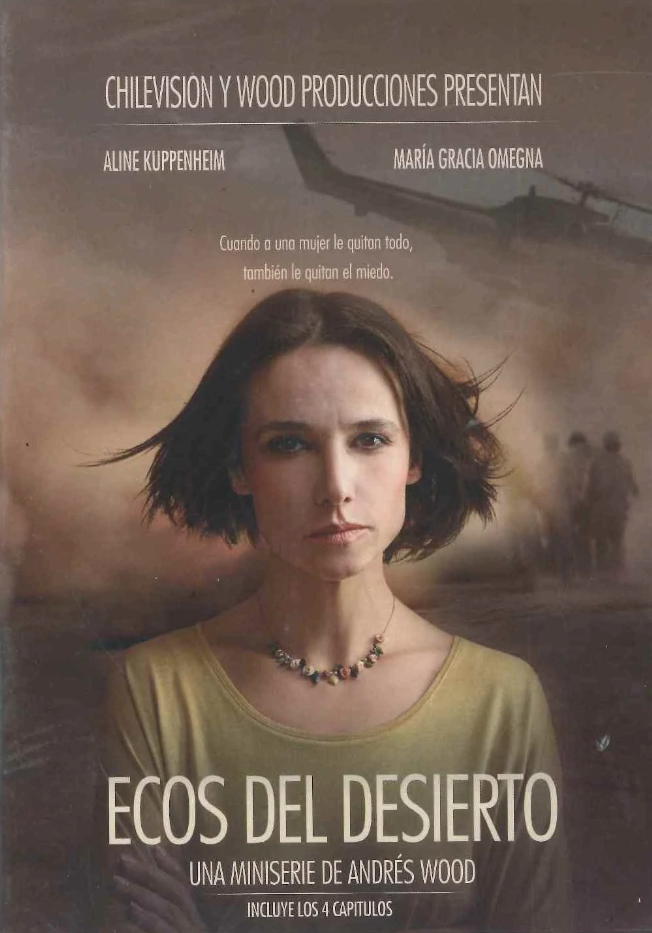Ecos del desierto
Filmed mainly in northern Chile and in the capital, Santiago, the serie Ecos del desierto (Echoes of the Desert) recounts crucial moments in the life of lawyer Carmen Hertz. First, the assassination of her husband Carlos Berger, a communist party militant, during the military dictatorship in 1973 in Calama at the hands of the Caravana de la muerte (Caravan of Death) and, subsequently, the long struggle she led in search of truth and justice through the human rights organization “Vicaría de la solidaridad“ and other institutions. This situation exposed her to threats and persecution by those involved.
With leaps in time, between the decades of the 70s, 80s and 2000s, the four-episode miniseries recounts some of the darkest episodes of the Chilean dictatorship, such as the military operation known as the Caravana de la muerte, led by General Sergio Arellano Stark, in which a retinue of the Chilean Army toured the country in 1973, killing 97 political prisoners. Later, at the end of the 1970s, Pinochet gave the order to dig up the bodies from the mass graves, put them on helicopters tied to rails and then throw them into the sea. This operation was known as "Withdrawal of the televisions" and is also part of the story told in the series.
Ecos del desierto was broadcast by Chilevisión channel in 2013, in the context of the commemoration of the fortieth anniversary of the coup d'état in the country. Subsequently, it was broadcast throughout Latin America through Tuner Networks Telivision (TNT). The production is based on the judicial archives of the "Caravan of Death Case" (span. “caso caravana de la muerte”) and uses archival material, such as original images and audios.
Carmen Hertz herself, currently deputy in the Chilean parliament, who collaborated in writing the script, referred in an interview to the series and the different television productions in the context of the commemoration of the military coup: "this explosion of memory is also a formula for healing and reparation, but not only personal. What happened to my family was part of what happened to thousands of Chileans because we are part of a sector of society that was persecuted".
Written by Catalina Brunnetti

